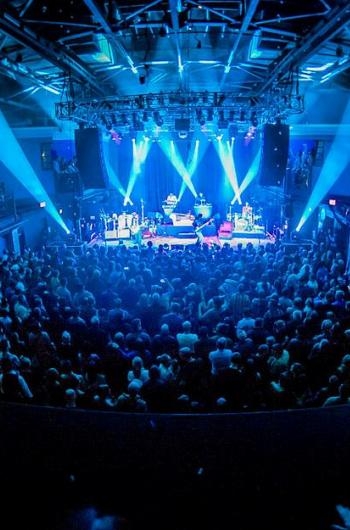
When preparing any event, an experienced organizer always has an action plan and a checklist for each stage. However, the preparation of a small corporate event can be very different from a large conference or festival. So, here are five main points to think about first before starting a large-scale event.
1. Platform
Everything starts with the platform. When selecting a site it is important to consider every detail: the number of participants, whether it's a single event or it will be necessary to organize several parallel sessions to determine the format of the event (business, entertainment, corporate, etc.). It is necessary to examine gender, age, social status of potential participants and to make a detailed portrait of the target audience for proper site selection, for example for business events car manufacturer most likely will not fit venue of the youth festival.
When choosing site options, you need to evaluate many other factors that correspond to the selected format and target audience: transport accessibility, Parking availability which organizations are located in the surrounding territories, interior design, availability and availability of technical support and its quality. In addition, to take care of the quality of service in advance if there is a "court" catering site-to organize test food and tastings for the opportunity to adjust the menu at the preparation stage or to assess the need to attract other catering.
2. Team
Having a well-coordinated team is half the success. It is not only the experience of each team member that is important, but also the correct distribution of roles within it. Before starting implementation, you must appoint a project Manager. This is the "flight control center", the main person for the entire period of preparation and conduct of the event, it distributes areas of responsibility among team members, delegates authority, sets deadlines for tasks and coordinates their quality performance. The Manager does not just coordinate the process and the implementation of tasks, it is a person who knows all the "pitfalls" in organizing the event and makes final decisions on key issues. If the project is large and requires lengthy preparation, the Manager should appoint a Deputy-a duplicate person who can take over all the coordination responsibilities in case of unforeseen situations.
Distribution of the roles of other team members should occur taking into account the relevant experience of each: the production Manager chooses reliable contractors and production methods of printing, merchandise, digital marketing Manager and is responsible for the choice of methods of project promotion, preparation and implementation of the plan, event specialists and develop event concept, script, responsible for technical and creative support and overall coordination of the event, all necessary texts are written by an experienced copywriter. If there is a task that none of the team members can handle, you should hire a consultant or freelancer.
3. The content
Content for a major event is generated depending on the target audience, positions, industry, and expert interests.
Do not forget that content is not only a business program, but also an opportunity to introduce modern interactive novelties and multimedia "chips"to the event. Remember how you first reacted to a robot talking to you or traveling in VR glasses? And what opportunities 3D-mapping has opened up!
4. Risk management
At the planning stage, it is necessary to develop a risk management plan for the project implementation. Risks can be external and internal. External risks are divided into controlled (lack of information, availability of any resources, unexpected expenses, failure of equipment, etc.) and uncontrolled (possible force majeure, natural disasters, coups-unplanned external events that we cannot predict. Internal risks are often non-technical, and are most often associated with a lack or insufficient competence of the personnel involved in the preparation of the event.
That is why it is so important to draw up a detailed road map of the event in advance, a media plan, introduce an internal control system for each of the performers, a system of regular reporting for timely identification of problems, think about reserve team members and funds to cover unexpected expenses.
5. Promotion
Promotion is an important part of the event's implementation, because it is through the right promotion tools that the potential target audience will learn about the event, the latest news, additions or changes to the program. At the planning stage, you need to make a PR promotion plan, a media plan for advertising placements with deadlines for submitting information, agree on terms of cooperation with information partners, make a list of media outlets with contacts of journalists who specialize in your topic, and of course comply with the terms and methods of the adopted event promotion plan.
Depending on the theme, format, and audience of the event, you can use not only the classic set of tools – media, social networks, banner ads, but also the good old-fashioned phone calls to representatives of the target audience. For example, at the stage of implementation of the festival "Silver mercury. North-West" in 2017, with the help of the information partner Yellow Pages, we managed to increase the number of participating agencies by 30%!
Also, do not forget about such an effective promotion tool as industry and professional communities. They gather the main players of a particular industry, which provides a direct hit to the audience, if the event is specialized.
Of course, after the start of work, there are more and more new rules that need to be followed for the successful implementation of a major event, but this is a topic for a separate book ;)



